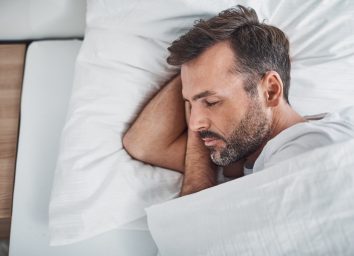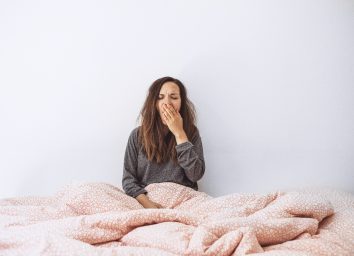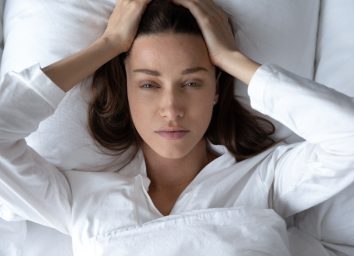Eating Habits to Avoid for Better Sleep After 50, Say Dietitians
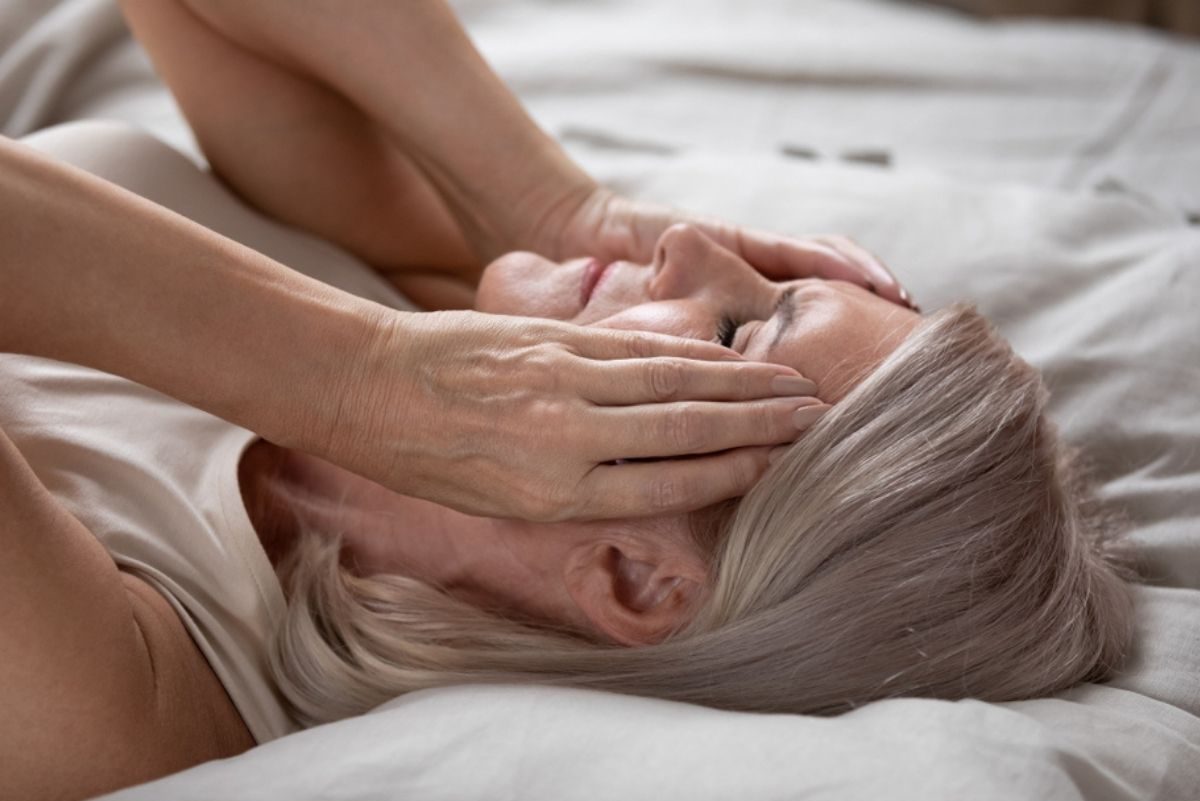
If you regularly have trouble falling asleep and getting a good night of rest, it may be because you’re getting older, or it could have something to do with the kind of food you’re eating and when you’re eating it. Or it could be a combo of both.
One-third of adults experience insomnia symptoms at any given time, according to experts at Johns Hopkins Medicine. And it’s common for the quality and duration of your sleep to change in your 40s and 50s, sleep doctors say. This happens due to age-related changes in a part of your brain called the suprachiasmatic nucleus, which controls your sleep/wake cycles or circadian rhythms.
There’s not much you can do to avoid those changes unless you can figure out a way to stop aging, but there is something you can do to get a better night’s sleep: Avoid eating habits that are detrimental to sleep and replace them with healthier habits that’ll drift you into slumber. Here’s are the eating habits to avoid for better sleep after 50, according to dietitians we consulted, and for more, don’t miss Secret Eating Habits To Reshape Your Body After 50, Say Dietitians.
Eating too close to bedtime
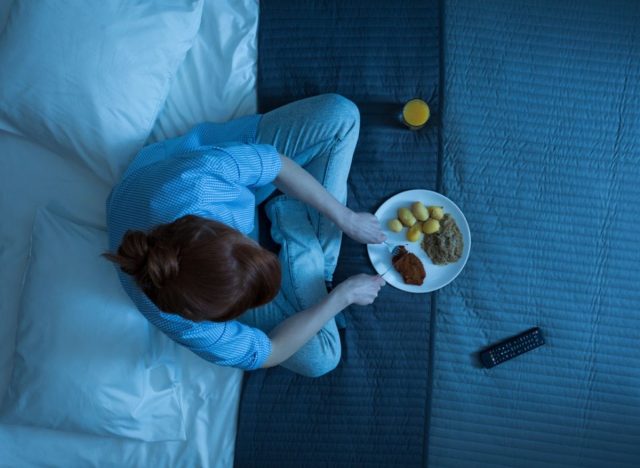
A light snack 30 minutes before bedtime may help make you drowsy, especially if the food contains the natural sleep-inducing hormone melatonin. Note we said, “light snack,” meaning a few almonds, maybe a small bowl of low-sugar cereal with low-fat milk, or a little yogurt.
Avoid eating a big meal fewer than two or three hours before your bedtime or you’ll still be digesting when you lie down. “Your body temperature normally drops during sleep, but digestion causes a rise in core body temperature, which may make it harder to fall asleep and reduce the quality of sleep,” says Danielle McAvoy, MSPH, RD, a registered dietitian with Strong Home Gym.
Making nightcaps a habit
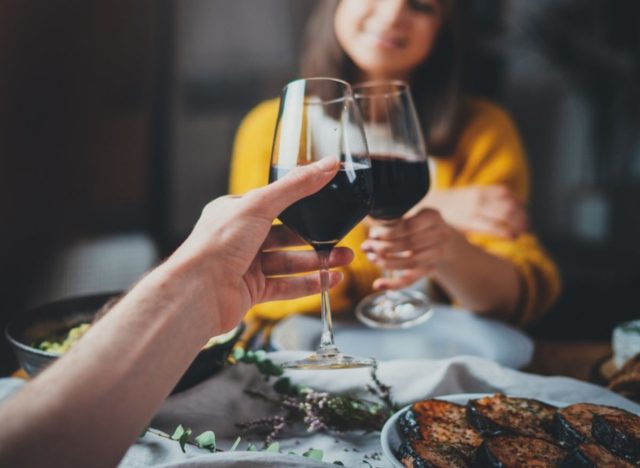
A glass or two of cabernet may make you sleepy so you figure you’ll have a nightcap to help you nod off. That practice can backfire on you. “Alcohol might fuel deep sleep at the beginning of the night; however, the second half of your slumber will likely be more interrupted and full of strange dreams,” says Kristine Dilley, RDN, a registered dietician nutritionist at The Ohio State University Wexner Medical Center.
Drinking alcohol late in the evening promotes waking up often and missing out on deep sleep cycles. “If you enjoy a cocktail in the evening, consider pairing it with dinner instead,” Dilley says.
Skimping on meals to lose weight
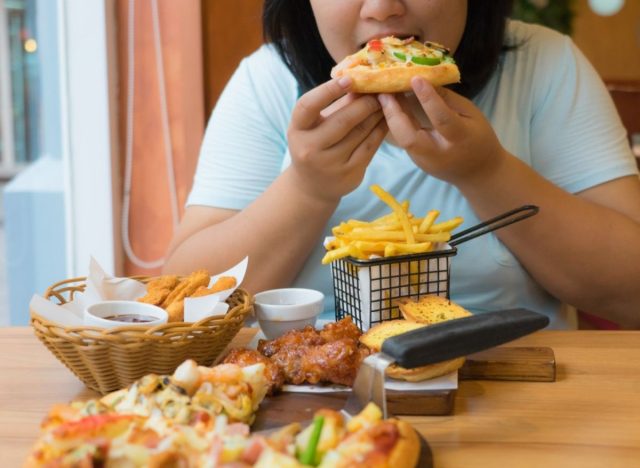
A lot of people avoid breakfast and lunch and even snacks throughout the day thinking that they will save their calories for a more indulgent meal in the evening. Doing that can leave you so ravenous at dinner time you can overeat and leave feeling so stuffed you’ll have trouble falling asleep at bedtime, warns Dilley. It also increases the chances of indigestion. “It’s better to spread your calories throughout the day and then take your time at dinner to savor the meal and avoid overeating,” she says.
Consuming processed carbs
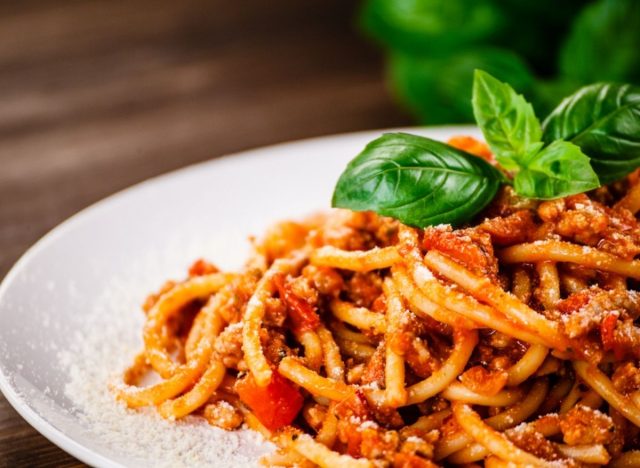
While timing your last meal is important to good sleep, what you eat can mean the difference between waking up feeling rested or groggy and sluggish. McAvoy recommends avoiding highly processed carbohydrates like pasta, chips, cakes, and other baked goods “because they may make you wake up more often throughout the night.”
Also avoid spicy foods, which may make it harder to fall asleep because they can cause heartburn and raise your core body temperature. Adopting a habit of eating lots of vegetables, fruits, and whole grains will improve sleep because your diet will be well-balanced. “If you’re not getting enough magnesium, calcium, or vitamins from your diet, a lack of those nutrients has also been shown to reduce the quality of sleep,” McAvoy says.
Eating fatty or spicy foods
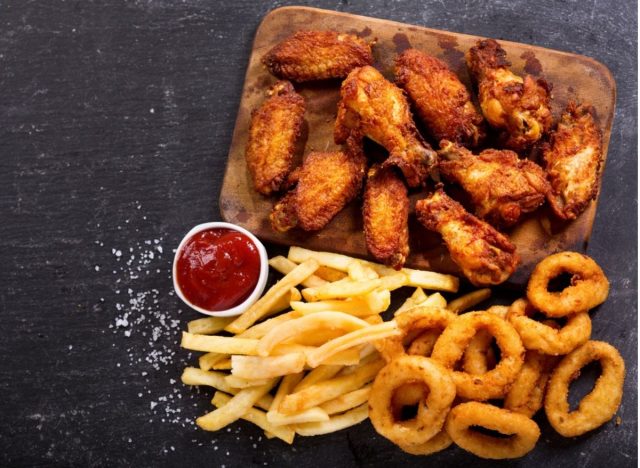
Fast foods that are typically high in protein, rich in fat, and fried are poor choices for nighttime eating if restful slumber is your goal. “Fat and protein take the longest to break down in the stomach,” says Holly Klamer, MS, RDN, a registered dietitian nutritionist with MyCrohnsAndColitisTeam.com. “Eating high-fat foods and feeling overstuffed can interrupt sleep quality and may trigger heartburn.”
Klamer suggests trying to eat the bulk of calories early in the day or at least time dinner for early evening. Not only may it improve your sleep, but she also notes, a 2011 study found at late eating after 8 p.m. may increase the risk of developing obesity.
Sipping an afternoon cup of coffee or tea
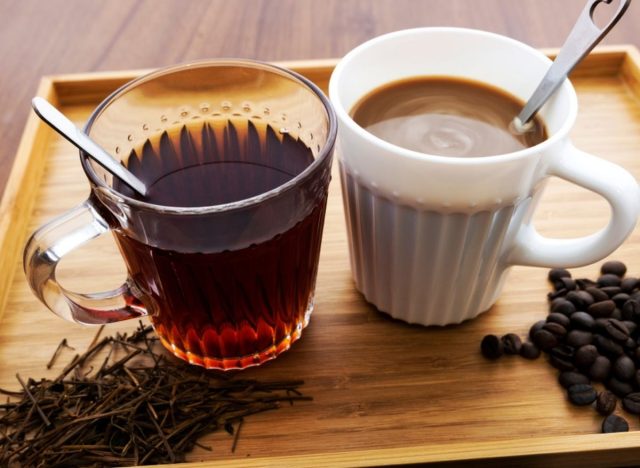
If you drink four to six cups of coffee or tea a day, even if you have them all in the morning, that could cause your body to be restless and sleep less deeply, suggests Juliana Tamayo, MS, a dietetic intern and nutritionist for FitnessClone.com. “Sleep can be particularly disrupted if you drink caffeine in the afternoon or evening,” she says. “Although you might be able to fall asleep, your sleep cycles might not be deep and leveled.”
If you routinely go to bed at 10 p.m., even a cup of tea at 2 p.m. may keep you up. “It can take 6-8 hours for your body to process and eliminate the caffeine you consume in one sitting,” says Wexner Medical Center’s Dilley.

